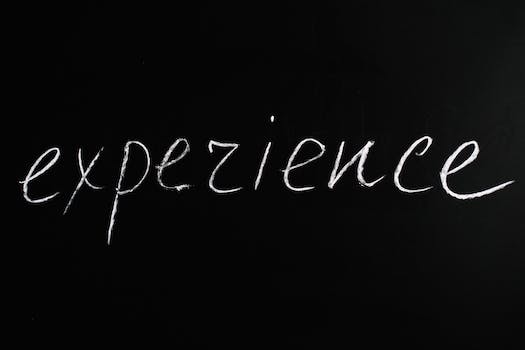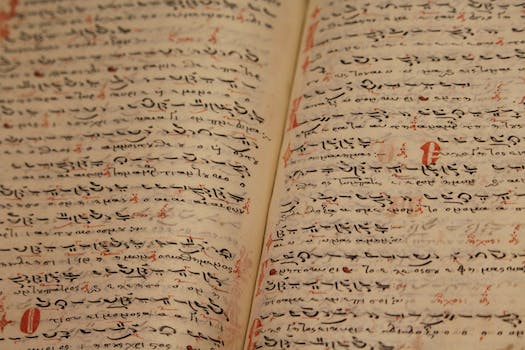

"Reviving the art of critical thinking with Descartes and Musashi's timeless wisdom."
Introduction
Descartes' Critical Analysis REBOOT: Featuring Miyamoto Musashi is a modern reinterpretation of the philosophical ideas of René Descartes, the 17th-century French philosopher, mathematician, and scientist, through the lens of the legendary Japanese swordsman Miyamoto Musashi. This analysis aims to explore the parallels between Descartes' method of systematic doubt and Musashi's martial arts philosophy, both of which emphasize the importance of questioning assumptions and seeking truth through rigorous examination. By combining the intellectual rigor of Descartes with the practical wisdom of Musashi, this reboot offers a unique perspective on critical thinking and self-discovery.
The Philosophy of Descartes and Musashi: A Comparative Study
Descartes' Critical Analysis REBOOT: Featuring Miyamoto Musashi
The philosophy of Descartes and Musashi may seem worlds apart, but upon closer examination, there are striking similarities between the two. Both philosophers were concerned with the nature of reality and the pursuit of truth, and both developed unique methods for achieving these goals.
René Descartes, the French philosopher, and mathematician, is best known for his famous declaration, "Cogito, ergo sum" or "I think, therefore I am." This statement is the foundation of his philosophy, which is centered on the idea that the only thing we can be certain of is our own existence. Descartes believed that in order to find truth, we must first doubt everything we think we know. This process of systematic doubt leads us to the one thing that cannot be doubted - our own existence as thinking beings.
On the other hand, Miyamoto Musashi, the Japanese swordsman, and philosopher, is known for his book "The Book of Five Rings," which outlines his philosophy on martial arts and life. Musashi's philosophy is based on the idea that the way of the warrior is the way of truth. He believed that through rigorous training and discipline, one could achieve a state of mind that is free from illusion and capable of perceiving reality as it truly is.
Both Descartes and Musashi believed that the pursuit of truth requires a certain level of skepticism. Descartes' method of doubt is similar to Musashi's concept of "munen," or "no-thought," which is the idea that one must let go of preconceived notions and biases in order to see things clearly. Both philosophers also believed that the pursuit of truth is a solitary endeavor. Descartes' famous "Meditations" were written in solitude, and Musashi spent many years living as a hermit, honing his skills and developing his philosophy.
However, there are also differences between the two philosophers. Descartes was primarily concerned with the nature of reality and the existence of God, while Musashi's philosophy was more practical, focusing on the art of swordsmanship and the way of the warrior. Descartes' philosophy is more abstract and theoretical, while Musashi's is more concrete and action-oriented.
Despite these differences, the philosophies of Descartes and Musashi share a common goal - the pursuit of truth. Both philosophers believed that truth is not something that can be easily attained, but rather something that must be actively sought after. They both believed that the path to truth is fraught with obstacles and requires a certain level of discipline and dedication.
In conclusion, the philosophies of Descartes and Musashi may seem different at first glance, but upon closer examination, they share many similarities. Both philosophers were concerned with the nature of reality and the pursuit of truth, and both developed unique methods for achieving these goals. Their philosophies continue to inspire and challenge us to this day, reminding us that the pursuit of truth is a never-ending journey that requires skepticism, discipline, and dedication.
Descartes' Method of Doubt and Musashi's Way of the Warrior

Descartes' Critical Analysis REBOOT: Featuring Miyamoto Musashi
Descartes' Method of Doubt and Musashi's Way of the Warrior
The quest for knowledge and truth has been a driving force for many great thinkers throughout history. Two such individuals, René Descartes and Miyamoto Musashi, approached this quest from different angles, yet their methods share striking similarities. Descartes, a French philosopher, mathematician, and scientist, is known for his method of doubt, while Musashi, a Japanese swordsman, philosopher, and strategist, is renowned for his Way of the Warrior. Both men sought to strip away falsehoods and illusions to uncover the essence of reality.
Descartes' method of doubt is a systematic process of questioning the validity of one's beliefs. He believed that in order to establish a firm foundation for knowledge, one must first discard any belief that could be subject to even the slightest doubt. This radical skepticism led him to the famous conclusion, "Cogito, ergo sum" or "I think, therefore I am." Descartes' approach was revolutionary, as it shifted the focus from external authority to the individual's capacity for reason and self-reflection.
Similarly, Musashi's Way of the Warrior, or "Bushido," emphasizes the importance of self-discipline, rigorous training, and a relentless pursuit of perfection. Musashi's philosophy, outlined in his book "The Book of Five Rings," advocates for a life dedicated to the mastery of one's craft, be it swordsmanship or any other endeavor. He believed that through constant practice and self-examination, one could achieve a state of "no-mind," where actions become instinctual and the warrior operates beyond the constraints of fear and doubt.
Both Descartes and Musashi recognized the power of the mind in shaping one's reality. Descartes' method of doubt encourages individuals to question their assumptions and beliefs, leading to a deeper understanding of the self and the world. Musashi's Way of the Warrior, on the other hand, focuses on honing one's skills and instincts to such a degree that they become second nature, allowing the warrior to act with precision and clarity in the heat of battle.
The parallels between Descartes' method of doubt and Musashi's Way of the Warrior are evident in their shared emphasis on self-reliance and the pursuit of excellence. Both philosophies challenge individuals to look within themselves for answers, rather than relying on external sources of authority. This introspective approach fosters a sense of empowerment and confidence, as one learns to trust their own judgment and abilities.
In today's fast-paced and ever-changing world, the principles espoused by Descartes and Musashi are more relevant than ever. The ability to critically analyze information, question assumptions, and rely on one's own reasoning is essential in navigating the complexities of modern life. Similarly, the dedication to continuous improvement and mastery of one's craft can lead to personal and professional fulfillment.
Descartes' method of doubt and Musashi's Way of the Warrior offer timeless wisdom for those seeking to understand themselves and the world around them. By embracing these philosophies, individuals can cultivate a mindset of resilience, adaptability, and self-assuredness. Whether one is a philosopher, a warrior, or simply a person striving for growth and knowledge, the teachings of Descartes and Musashi provide a roadmap for a life lived with purpose and conviction.
The Role of Mind and Body in Descartes and Musashi's Teachings
Descartes' Critical Analysis REBOOT: Featuring Miyamoto Musashi
The role of mind and body in the teachings of Descartes and Musashi is a fascinating topic that has intrigued scholars and philosophers for centuries. Both thinkers have made significant contributions to our understanding of the relationship between the mind and the body, and their ideas continue to inspire and challenge us today.
René Descartes, the French philosopher, and mathematician, is best known for his famous statement, "Cogito, ergo sum," which translates to "I think, therefore I am." Descartes believed that the mind and the body were two distinct entities, with the mind being the source of all knowledge and the body being a mere machine that carries out the mind's commands. He argued that the mind is capable of existing independently of the body and that it is the only thing that we can be certain of.
On the other hand, Miyamoto Musashi, the legendary Japanese swordsman, and philosopher, had a different perspective on the mind-body relationship. Musashi believed that the mind and the body are interconnected and that one cannot function without the other. He emphasized the importance of training both the mind and the body to achieve mastery in the art of swordsmanship. Musashi's teachings are encapsulated in his famous book, "The Book of Five Rings," where he outlines the principles of strategy and tactics that are applicable not only to martial arts but also to life in general.
While Descartes and Musashi had different views on the mind-body relationship, they both recognized the importance of the mind in achieving success. Descartes believed that the mind is the source of all knowledge and that it is through the mind that we can understand the world around us. Musashi, on the other hand, believed that the mind is the key to mastering the art of swordsmanship and that it is through the mind that we can achieve victory in battle.
Both thinkers also recognized the importance of discipline and training in achieving mastery. Descartes believed that the mind must be trained through rigorous study and contemplation, while Musashi believed that the body must be trained through physical exercise and practice. They both understood that the mind and the body must work together to achieve greatness.
The teachings of Descartes and Musashi continue to inspire and challenge us today. Their ideas remind us that the mind and the body are not separate entities but are interconnected and that we must train both to achieve our goals. They also remind us that discipline and hard work are essential to achieving mastery in any field.
In conclusion, the role of mind and body in the teachings of Descartes and Musashi is a topic that continues to fascinate and inspire us. Their ideas challenge us to think critically about the relationship between the mind and the body and to recognize the importance of training both to achieve success. Whether we are philosophers, martial artists, or simply individuals seeking to improve ourselves, the teachings of Descartes and Musashi offer valuable insights into the role of mind and body in our lives.
Descartes' Critical Analysis and Musashi's Book of Five Rings
Descartes' Critical Analysis REBOOT: Featuring Miyamoto Musashi
The world of philosophy and martial arts may seem like two entirely different realms, but when we delve deeper into the teachings of René Descartes and Miyamoto Musashi, we find that their critical analysis of the world around them shares striking similarities. Descartes, the father of modern philosophy, is known for his method of doubt, which encourages individuals to question everything they know to be true. Musashi, on the other hand, was a legendary Japanese swordsman and ronin, whose Book of Five Rings is a classic text on strategy and combat. Despite their different backgrounds, both men sought to understand the world through a critical lens, and their teachings continue to inspire individuals to this day.
Descartes' method of doubt is a systematic process of questioning everything we believe to be true, in order to arrive at a foundation of certainty. He famously stated, "I think, therefore I am," which has become a cornerstone of Western philosophy. This idea emphasizes the importance of the individual's ability to think and reason as the basis for knowledge and existence. Musashi's Book of Five Rings, on the other hand, is a practical guide to strategy and combat, but it also contains a deeper philosophical message. Musashi believed that the way of the warrior was not just about physical prowess, but also about mental discipline and self-awareness.
Both Descartes and Musashi understood that true knowledge and understanding come from within. Descartes encouraged individuals to use their own reason and intellect to arrive at the truth, while Musashi emphasized the importance of self-reflection and introspection in mastering the art of combat. Their teachings remind us that we must look inward to find the answers we seek, rather than relying on external sources of authority.
Furthermore, Descartes and Musashi both recognized the importance of adaptability and flexibility in the face of uncertainty. Descartes' method of doubt requires individuals to be open to new ideas and willing to change their beliefs when presented with new evidence. Musashi's Book of Five Rings emphasizes the importance of being able to adapt to changing circumstances and to think on one's feet in the heat of battle. Both men understood that the world is constantly changing, and that we must be willing to adapt and evolve in order to succeed.
In today's fast-paced and ever-changing world, the teachings of Descartes and Musashi are more relevant than ever. We are constantly bombarded with information and opinions, and it can be difficult to know what to believe. Descartes' method of doubt and Musashi's emphasis on self-awareness and adaptability provide a framework for navigating the complexities of modern life. By questioning our beliefs and being open to new ideas, we can develop a deeper understanding of ourselves and the world around us.
In conclusion, Descartes' critical analysis and Musashi's Book of Five Rings may seem like unlikely companions, but their teachings share a common thread of self-reflection and adaptability. Both men remind us that true knowledge and understanding come from within, and that we must be willing to question our beliefs and adapt to new circumstances in order to succeed. Their teachings continue to inspire individuals to think critically and to approach the world with an open mind and a willingness to learn.
The Intersection of Western and Eastern Thought in Descartes and Musashi's Works
Descartes' Critical Analysis REBOOT: Featuring Miyamoto Musashi
The intersection of Western and Eastern thought in Descartes and Musashi's works is a fascinating exploration of two distinct philosophical traditions that have shaped the way we think about the world. René Descartes, the French philosopher, and mathematician, is often referred to as the father of modern Western philosophy. His famous statement, "I think, therefore I am," has become a cornerstone of Western thought, emphasizing the importance of reason and individualism. On the other hand, Miyamoto Musashi, the legendary Japanese swordsman, and philosopher, is known for his book "The Book of Five Rings," which outlines his philosophy on martial arts and life. Musashi's work emphasizes the importance of discipline, focus, and the interconnectedness of all things.
Despite the differences in their cultural backgrounds and philosophical approaches, Descartes and Musashi share some common ground. Both philosophers were critical thinkers who challenged the status quo and sought to understand the world through their unique perspectives. Descartes' method of doubt, where he questioned everything he believed to be true, is similar to Musashi's approach to martial arts, where he constantly sought to improve his technique and question his assumptions.
Furthermore, both Descartes and Musashi were interested in the relationship between the mind and the body. Descartes believed that the mind and body were separate entities, with the mind being the source of all knowledge and the body being a mere machine. Musashi, on the other hand, saw the mind and body as interconnected, with the physical practice of martial arts being a way to train the mind and achieve a state of inner peace.
The intersection of Western and Eastern thought in Descartes and Musashi's works also highlights the importance of balance. Descartes' emphasis on reason and individualism can be seen as a counterbalance to Musashi's focus on discipline and interconnectedness. Both philosophers recognized that there is a need for both reason and discipline, individualism and interconnectedness, in order to achieve a full understanding of the world.
In today's world, where we are constantly bombarded with information and distractions, the teachings of Descartes and Musashi are more relevant than ever. Descartes' critical analysis and Musashi's emphasis on focus and discipline can help us navigate the complexities of modern life and find a sense of balance and purpose.
In conclusion, the intersection of Western and Eastern thought in Descartes and Musashi's works is a testament to the universality of the human experience. Despite their differences, both philosophers sought to understand the world and their place in it. Their works continue to inspire and challenge us to think critically, question our assumptions, and strive for a deeper understanding of ourselves and the world around us. By embracing the teachings of both Descartes and Musashi, we can find a sense of balance and purpose in our lives, and continue to push the boundaries of what is possible.
Q&A
1. What is Descartes' Critical Analysis REBOOT: Featuring Miyamoto Musashi?
It is a modern interpretation of Descartes' philosophical ideas, incorporating the principles of the legendary Japanese swordsman Miyamoto Musashi.
2. How does Miyamoto Musashi's philosophy relate to Descartes' ideas?
Both Descartes and Musashi emphasize the importance of self-reliance, critical thinking, and the pursuit of knowledge through personal experience.
3. What is the main focus of Descartes' Critical Analysis REBOOT?
The main focus is to re-examine Descartes' famous statement "Cogito, ergo sum" (I think, therefore I am) through the lens of Musashi's teachings on strategy and the way of the warrior.
4. How does the REBOOT aim to update Descartes' philosophy?
The REBOOT aims to make Descartes' philosophy more accessible and applicable to modern audiences by incorporating elements of Eastern philosophy and martial arts.
5. What can readers expect to gain from this analysis?
Readers can expect to gain a deeper understanding of Descartes' philosophy, as well as practical insights into how to apply critical thinking and self-discipline in their own lives.
Conclusion
In conclusion, Descartes' Critical Analysis REBOOT: Featuring Miyamoto Musashi offers a unique perspective on the intersection of Western and Eastern philosophy. By comparing Descartes' rationalism with Musashi's samurai wisdom, the analysis highlights the importance of questioning one's beliefs and the pursuit of self-improvement. It ultimately suggests that a combination of critical thinking and practical experience can lead to a more holistic understanding of the world.










